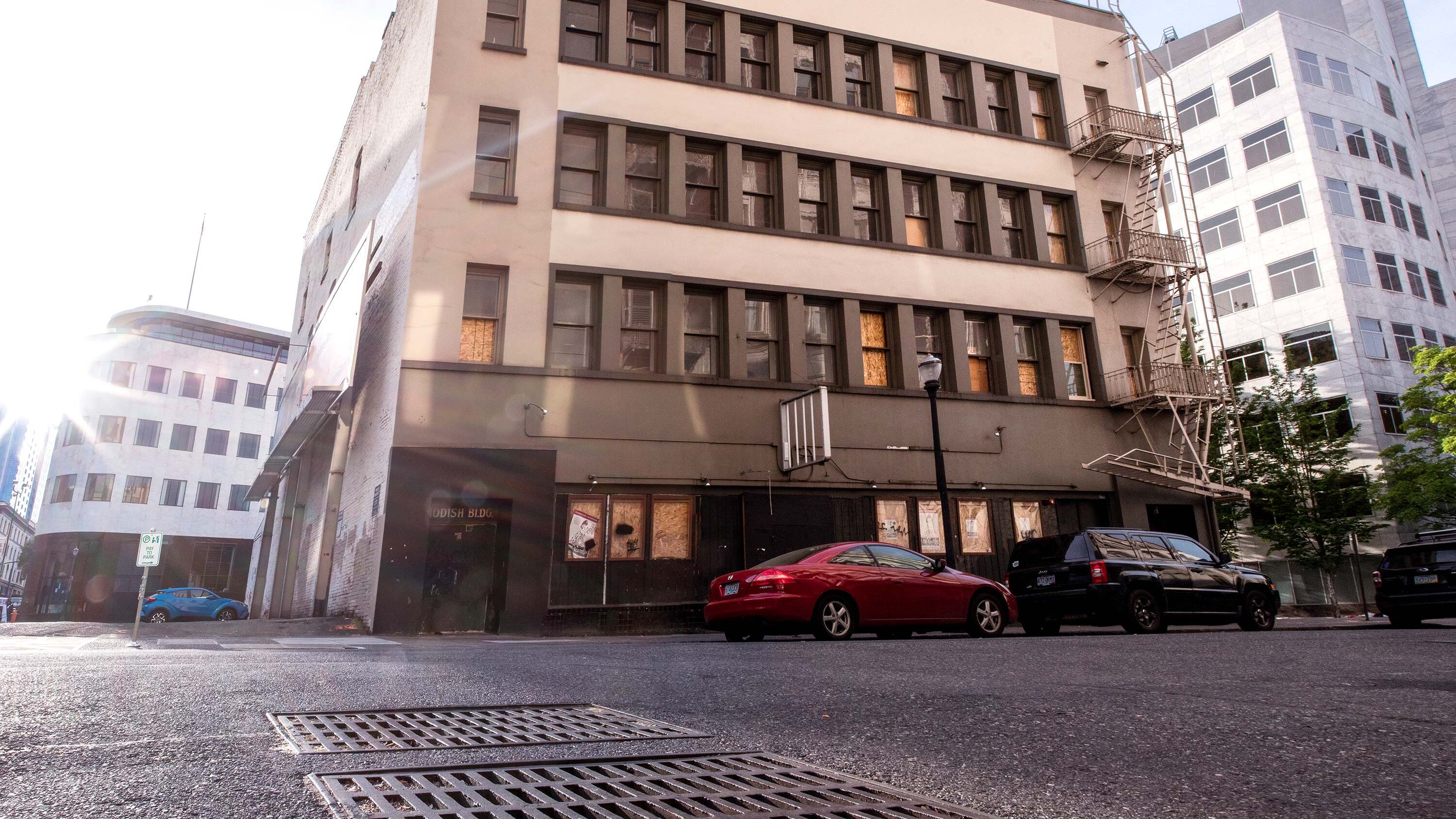Last year, when the Multnomah County Board of Commissioners voted to offload Wapato Jail, Chairwoman Deborah Kafoury pledged to learn from the expensive lesson.
The county had built the $58 million Wapato but never found the money to operate it. For 15 years, the county nonetheless continued to pay $300,000 a year to maintain the mothballed facility.
"Wapato has given me a great sense of humility about how this board's decisions will affect the future," Kafoury said before casting her vote April 12, 2018, to sell the building. "It has only deepened my resolve to learn from the past."
However, a little more than one year later, Multnomah County owns another piece of real estate without the funds to operate it or a detailed plan for what to do with it.
On April 12, Kafoury announced the purchase: The county had spent $4.34 million for the Bushong Building, a 24,000-square-foot structure at 333 SW Park Ave. owned by developer Tom Cody.
Kafoury now wants to use it to provide walk-in mental health services, including temporary shelter, for people downtown.
For two years, Cody worked toward turning the former nightclub into an office building. But costs proved prohibitive, and on Sept. 28, 2018, Cody formally offered the building to the county. In a Oct. 9 email, he told officials the building was costing him $900 a day to continue to own.
Emails and meeting minutes reviewed by WW show county officials and others raised red flags about the cost and logistics of the building before the purchase.
On Feb. 7, real estate investor Greg Goodman, who owns property nearby, questioned the price in a letter to Kafoury, WW reported at the time. "It's not by accident that this building remains vacant," Goodman wrote.
As the county considered the deal, employees in the county's real estate office issued warnings about the cost of acquiring and renovating the building—but also, in shades of Wapato, about where the money would come from to operate the facility.
Notes from a Feb. 12 meeting listed the downsides of closing the sale quickly, according to minutes taken by Corey Morris of the consulting firm Carleton Hart Architecture: "Cost uncertainties make this option extremely prohibitive. If we determine the cost of renovation or a complete new build outweighs the benefits, then we're stuck as the owner without any clear option for using the site."
The county took more time to evaluate and established more of the costs. As late as March 1, CBRE, the real estate brokerage working with the county, suggested an alternative site: Block 25 in Chinatown, owned by Prosper Portland, according to an email from CBRE's Graham Taylor to county officials. (The county says part of getting a good deal was looking at other properties.)
The county nevertheless decided to go with Cody's building and buy a parking lot next door. The board voted to approve the purchase in January for the price Cody had offered in September. (Kafoury has received one campaign contribution from Cody, for $1,000 in 2017.)
With the parking lot, the purchase price will come to $5.8 million. CBRE pegged the price at the high end of the range for such properties—and the building is basically a shell.
County spokeswoman Julie Sullivan-Springhetti says officials still haven't decided how to redevelop the property. "Our mental health experts and facilities teams are currently exploring all options, and plan to arrive at a preferred development option by July 2019," she says.
County officials say there is $11 million in the chair's budget for construction, short of the county's own estimates of the costs to renovate: between $16.5 million and $21.5 million, including the building purchase, according to a March 4 memo from Bob Leek, interim director of the Department of County Assets. In addition, the county says the mental health center will cost up to $5.2 million a year to run. Documents show officials have found only $2.5 million for operations—less than half the needed sum.
The acquisition comes at a time when Kafoury has asked county departments to cut their budgets 3 percent, as personnel costs continue to increase faster than tax revenues.
Portland lawyer John DiLorenzo obtained county emails about the project for a client he declined to name. DiLorenzo says what he sees in the documents alarms him.
"I can't believe the county chair would have already spent millions of dollars of public money on this wreck of a building," he says, "for a project she has no idea how to fund within several months of having taken a bath on Wapato and in an environment requiring cuts to other needed county services."
Kafoury says comparing the two projects is a mistake. Current plans for the Bushong Building—a crisis center, a shelter and transitional housing—respond to a priority for citizens and local elected officials, she says.
"There's never enough money to fund all things we want to fund as a community," says Kafoury. "We have to make hard choices. When I started and we knew that the Sellwood Bridge had a rating of 2 out of 100, there wasn't any money. So I went out and raised money. Same thing for the downtown courthouse. I'm hearing from community members on a daily basis how important this project is."

